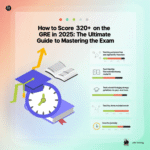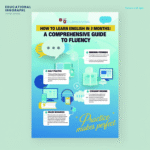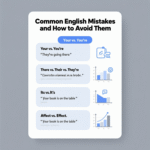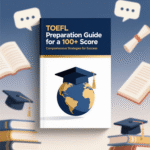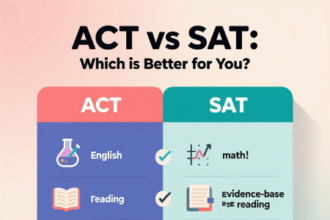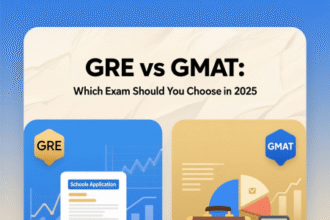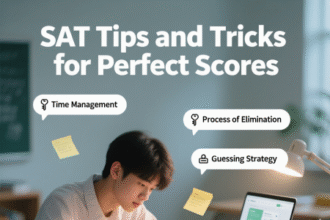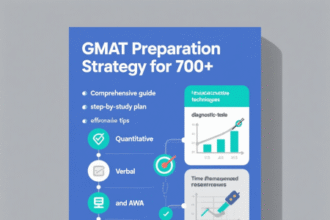The SSC CGL Exam 2025 is a highly competitive examination conducted by the Staff Selection Commission (SSC) to recruit candidates for Group B and Group C posts in various ministries, departments, and organizations under the Government of India. With thousands of aspirants vying for limited vacancies, a well-structured study plan for SSC CGL Exam 2025 is essential to stand out and secure a top rank. This article provides a detailed, actionable, and comprehensive study plan tailored for both beginners and experienced candidates, ensuring effective preparation for both Tier 1 and Tier 2 exams. We cover every aspect of preparation, from understanding the syllabus to time management, mock tests, and subject-specific strategies, to help you ace the SSC CGL Exam 2025 with confidence.
- Understanding the SSC CGL Exam 2025
- Why You Need a Structured Study Plan for SSC CGL Exam 2025
- 6-Month Study Plan for SSC CGL Exam 2025
- Month 1: Building the Foundation
- Month 2: Strengthening Core Concepts
- Month 3: Intensive Practice and Mock Tests
- Month 4: Advanced Preparation for Tier 2
- Month 5: Revision and Performance Optimization
- Month 6: Final Push and Exam Readiness
- 60-Day Study Plan for SSC CGL Exam 2025
- Weeks 1–2: Foundation and Core Concepts
- Weeks 3–4: Advanced Concepts and Practice
- Weeks 5–6: Intensive Practice and Tier 2 Preparation
- Weeks 7–8: Final Revision and Exam Readiness
- 30-Day Study Plan for SSC CGL Exam 2025
- Days 1–10: Core Concepts and Practice
- Days 11–20: Intensive Practice and Weak Area Focus
- Days 21–30: Final Revision and Exam Simulation
- 15-Day Study Plan for SSC CGL Exam 2025
- Days 1–5: Quick Revision and High-Weightage Topics
- Days 6–10: Intensive Practice
- Days 11–15: Final Push
- Subject-Wise Preparation Strategies
- General Intelligence & Reasoning
- Quantitative Aptitude
- English Comprehension
- General Awareness
- Specialized Preparation for JSO/AAO
- Importance of Mock Tests and Previous Year Papers
- Time Management Tips for SSC CGL Exam 2025
- Recommended Books and Resources
- Health and Stress Management
- Suggestions and Recommendations
- FAQs
Understanding the SSC CGL Exam 2025
The SSC CGL Exam 2025 is a multi-tier examination designed to test candidates’ aptitude, reasoning, general knowledge, and language skills. The exam is structured into two main tiers:
- Tier 1: A computer-based, objective-type exam that serves as a qualifying round.
- Tier 2: A more advanced computer-based exam with multiple papers, including specialized sections for certain posts.
Each tier evaluates candidates on four core sections: General Intelligence & Reasoning, General Awareness, Quantitative Aptitude, and English Comprehension. Additionally, Tier 2 includes papers on Statistics and General Studies (Finance and Economics) for specific posts like Junior Statistical Officer (JSO) and Assistant Audit Officer (AAO). Understanding the exam pattern and syllabus is the foundation of an effective study plan for SSC CGL Exam 2025.
SSC CGL Exam Pattern 2025
To devise a robust preparation strategy, we must first break down the exam pattern for both tiers:
Tier 1 Exam Pattern
- Duration: 60 minutes (80 minutes for scribe-eligible candidates)
- Total Questions: 100 (25 questions per section)
- Total Marks: 200 (2 marks per question)
- Negative Marking: 0.50 marks for each wrong answer
- Sections:
- General Intelligence & Reasoning
- General Awareness
- Quantitative Aptitude
- English Comprehension
Tier 2 Exam Pattern
- Paper 1 (Compulsory for all posts):
- Section I: Mathematical Abilities (30 questions, 90 marks), Reasoning and General Intelligence (30 questions, 90 marks)
- Section II: English Language and Comprehension (45 questions, 135 marks), General Awareness (25 questions, 75 marks)
- Section III: Computer Knowledge (20 questions, 60 marks), Data Entry Speed Test (DEST, qualifying)
- Duration: 2 hours for Session 1, 15 minutes for DEST
- Negative Marking: 1 mark for wrong answers in Paper 1 (except Computer and DEST modules)
- Paper 2: Statistics (100 questions, 200 marks, 2 hours) for JSO posts
- Paper 3: General Studies (Finance and Economics) (100 questions, 200 marks, 2 hours) for AAO posts
- Negative Marking: 0.50 marks for each wrong answer in Paper 2
This structure underscores the importance of a balanced preparation approach, covering all sections systematically to maximize scores. Our study plan for SSC CGL Exam 2025 is designed to address each section comprehensively, ensuring you are well-prepared for both tiers.
Why You Need a Structured Study Plan for SSC CGL Exam 2025
The SSC CGL Exam 2025 is highly competitive, with lakhs of candidates competing for prestigious government posts. A structured study plan offers several benefits:
- Comprehensive Syllabus Coverage: Ensures no topic is left uncovered.
- Time Management: Allocates sufficient time to each section based on its weightage and difficulty.
- Progress Tracking: Incorporates mock tests and revisions to monitor improvement.
- Discipline and Focus: Maintains consistency, especially for working professionals or students with limited study hours.
- Stress Reduction: Breaks down preparation into manageable tasks, reducing exam anxiety.
Our study plan spans various timeframes—15 days, 30 days, 60 days, and 6 months—to cater to candidates at different stages of preparation. Whether you’re a beginner or a seasoned aspirant, this plan will guide you to success.
6-Month Study Plan for SSC CGL Exam 2025
For candidates with ample time, a 6-month study plan for SSC CGL Exam 2025 provides a strong foundation and allows for in-depth preparation. This plan is ideal for beginners or those balancing work and study. Below, we outline a detailed month-by-month strategy.
Month 1: Building the Foundation
The first month focuses on understanding the syllabus, exam pattern, and building basic concepts. Dedicate 6–8 hours daily, divided as follows:
- General Intelligence & Reasoning (2 hours):
- Study basic concepts: analogies, number series, coding-decoding, blood relations, and direction sense.
- Practice 20–30 questions daily from books like A Modern Approach to Verbal & Non-Verbal Reasoning by R.S. Aggarwal.
- Focus on understanding patterns and logic rather than rote memorization.
- Quantitative Aptitude (2 hours):
- Cover arithmetic topics: percentages, ratios, averages, and profit and loss.
- Learn shortcuts and formulas from Quantitative Aptitude for Competitive Examinations by R.S. Aggarwal.
- Solve 20–25 problems daily to build speed and accuracy.
- English Comprehension (1.5 hours):
- Strengthen grammar: tenses, prepositions, sentence correction, and active/passive voice.
- Build vocabulary: learn 10–15 new words daily using Word Power Made Easy by Norman Lewis.
- Practice reading comprehension and cloze tests.
- General Awareness (1.5 hours):
- Start with static GK: history, geography, polity, and economics from Lucent’s General Knowledge.
- Read newspapers (e.g., The Hindu) to stay updated on current affairs.
- Make concise notes for quick revision.
- Daily Revision (1 hour):
- Revise formulas, vocabulary, and key GK facts.
- Attempt a mini mock test (10–15 questions) to assess understanding.
Key Tip: Create a notebook for each section to jot down formulas, shortcuts, and important points. This will streamline revision in later months.
Month 2: Strengthening Core Concepts
In the second month, deepen your understanding of complex topics and increase practice intensity. Allocate 8–10 hours daily:
- General Intelligence & Reasoning (2.5 hours):
- Move to advanced topics: syllogisms, seating arrangements, puzzles, and non-verbal reasoning.
- Practice 30–40 questions daily, focusing on time-bound problem-solving.
- Analyze mistakes to identify weak areas.
- Quantitative Aptitude (2.5 hours):
- Cover geometry, algebra, trigonometry, and number systems.
- Solve 25–30 problems daily, including word problems and data interpretation.
- Practice mental math to improve calculation speed.
- English Comprehension (2 hours):
- Focus on advanced grammar: direct/indirect speech, sentence rearrangement, and error spotting.
- Read editorials to improve comprehension skills and vocabulary.
- Practice 2–3 reading comprehensions and cloze tests daily.
- General Awareness (2 hours):
- Deepen knowledge of static GK: science, Indian Constitution, and important dates.
- Follow monthly current affairs magazines (e.g., Pratiyogita Darpan).
- Take weekly quizzes to test retention.
- Mock Tests and Revision (1–2 hours):
- Attempt one full-length Tier 1 mock test weekly (available on platforms like Testbook or Oliveboard).
- Analyze performance to identify strengths and weaknesses.
- Revise notes and formulas daily.
Key Tip: Use online platforms like PracticeMock or Adda247 for free topic-wise tests to reinforce learning.
Month 3: Intensive Practice and Mock Tests
The third month emphasizes practice and time management. Dedicate 8–10 hours daily, with a focus on mock tests:
- General Intelligence & Reasoning (2 hours):
- Solve complex puzzles, logical reasoning, and analytical questions.
- Practice 40–50 questions daily under timed conditions.
- Review solutions to understand alternative approaches.
- Quantitative Aptitude (2.5 hours):
- Focus on high-weightage topics: mensuration, data interpretation, and algebra.
- Solve 30–40 problems daily, including previous year questions.
- Master shortcut techniques for faster calculations.
- English Comprehension (2 hours):
- Practice advanced topics: para jumbles, fill-in-the-blanks, and idioms/phrases.
- Solve 2–3 reading comprehensions and 10–15 grammar questions daily.
- Learn 15–20 new words and revise previous ones.
- General Awareness (2 hours):
- Cover remaining static GK topics: awards, sports, and international organizations.
- Stay updated with current affairs through apps like Unacademy or BYJU’S.
- Take daily quizzes to improve retention.
- Mock Tests and Analysis (2 hours):
- Attempt 2–3 full-length Tier 1 mock tests weekly.
- Spend 30–45 minutes analyzing each test to identify patterns in mistakes.
- Revise weak topics based on test performance.
Key Tip: Simulate exam conditions during mock tests by setting a timer and avoiding distractions.
Month 4: Advanced Preparation for Tier 2
With Tier 1 concepts solidified, shift focus to Tier 2 preparation while maintaining Tier 1 revision. Dedicate 8–10 hours daily:
- General Intelligence & Reasoning (2 hours):
- Practice Tier 2-level reasoning questions: complex puzzles, critical reasoning, and data sufficiency.
- Solve 40–50 questions daily, focusing on accuracy.
- Review previous mistakes to avoid repetition.
- Quantitative Aptitude (2.5 hours):
- Tackle advanced topics: coordinate geometry, probability, and permutations/combinations.
- Solve 30–40 problems daily, including Tier 2-level questions.
- Practice data interpretation sets to improve speed.
- English Comprehension (2 hours):
- Focus on Tier 2 English: advanced reading comprehension, sentence completion, and vocabulary.
- Solve 3–4 reading comprehensions and 15–20 grammar questions daily.
- Revise idioms, phrases, and vocabulary regularly.
- General Awareness (2 hours):
- Deepen current affairs knowledge for the past 6 months.
- Revise static GK notes and take weekly quizzes.
- Focus on science and economics for Tier 2.
- Specialized Preparation for JSO/AAO (1–2 hours):
- For JSO: Study statistics (mean, median, mode, probability, and sampling) using Fundamentals of Statistics by S.C. Gupta.
- For AAO: Cover finance and economics (budget, fiscal policy, and accounting principles) using Indian Economy by Ramesh Singh.
- Solve 20–30 questions daily for these sections.
- Mock Tests and Revision (1–2 hours):
- Attempt one Tier 2 mock test weekly alongside Tier 1 tests.
- Revise notes and formulas daily to retain concepts.
Key Tip: Prioritize weak areas identified in mock tests and allocate extra time to them.
Month 5: Revision and Performance Optimization
The fifth month focuses on revision, speed, and accuracy. Dedicate 10–12 hours daily:
- General Intelligence & Reasoning (2 hours):
- Revise all topics, focusing on high-weightage areas like puzzles and seating arrangements.
- Solve 50–60 questions daily under timed conditions.
- Practice mixed question sets to simulate exam scenarios.
- Quantitative Aptitude (3 hours):
- Revise all formulas and shortcuts.
- Solve 40–50 problems daily, including previous year papers.
- Focus on data interpretation and advanced math for Tier 2.
- English Comprehension (2 hours):
- Revise grammar rules, vocabulary, and idioms.
- Solve 3–4 reading comprehensions and 20–25 grammar questions daily.
- Practice para jumbles and cloze tests.
- General Awareness (2 hours):
- Revise static GK notes and current affairs for the past 8 months.
- Take daily quizzes and read weekly current affairs compilations.
- Focus on high-yield topics like polity and science.
- Specialized Preparation for JSO/AAO (1–2 hours):
- Revise statistics and finance/economics concepts.
- Solve 30–40 questions daily for these sections.
- Practice data interpretation for JSO posts.
- Mock Tests and Analysis (2–3 hours):
- Attempt 3–4 full-length mock tests weekly (2 Tier 1, 1–2 Tier 2).
- Analyze performance thoroughly, focusing on time management.
- Revise weak areas based on test results.
Key Tip: Maintain a revision schedule to revisit all topics at least twice before the exam.
Month 6: Final Push and Exam Readiness
The final month is about fine-tuning your preparation and building confidence. Dedicate 10–12 hours daily:
- General Intelligence & Reasoning (2 hours):
- Solve 50–60 questions daily, focusing on speed and accuracy.
- Revise high-weightage topics and practice mixed sets.
- Avoid learning new topics; focus on strengthening known areas.
- Quantitative Aptitude (3 hours):
- Solve 40–50 problems daily, including Tier 2-level questions.
- Revise formulas, shortcuts, and data interpretation sets.
- Practice mental math to reduce calculation time.
- English Comprehension (2 hours):
- Solve 3–4 reading comprehensions and 20–25 grammar questions daily.
- Revise vocabulary and idioms.
- Practice error spotting and sentence rearrangement.
- General Awareness (2 hours):
- Revise current affairs for the past 10 months.
- Take daily quizzes and revise static GK notes.
- Focus on high-scoring topics like science and polity.
- Specialized Preparation for JSO/AAO (1–2 hours):
- Revise key concepts and formulas for statistics and finance/economics.
- Solve 30–40 questions daily.
- Practice data interpretation and case studies.
- Mock Tests and Analysis (2–3 hours):
- Attempt 4–5 full-length mock tests weekly (2 Tier 1, 2–3 Tier 2).
- Simulate exam conditions to build stamina and focus.
- Analyze tests to eliminate errors and optimize performance.
Key Tip: Take short breaks every 2 hours to maintain focus and avoid burnout. Ensure 7–8 hours of sleep to stay refreshed.
60-Day Study Plan for SSC CGL Exam 2025
For candidates with limited time, a 60-day study plan for SSC CGL Exam 2025 offers a focused approach to cover the syllabus efficiently. This plan is ideal for those with a basic understanding of concepts but needing intensive practice.
Weeks 1–2: Foundation and Core Concepts
- General Intelligence & Reasoning (2.5 hours daily):
- Cover analogies, series, coding-decoding, blood relations, and direction sense.
- Practice 40–50 questions daily from A Modern Approach to Verbal & Non-Verbal Reasoning.
- Focus on understanding logic and patterns.
- Quantitative Aptitude (3 hours daily):
- Study arithmetic: percentages, ratios, averages, and profit and loss.
- Solve 30–40 problems daily from Quantitative Aptitude by R.S. Aggarwal.
- Learn shortcuts for faster calculations.
- English Comprehension (2 hours daily):
- Cover grammar: tenses, prepositions, and sentence correction.
- Learn 10–15 new words daily and practice vocabulary exercises.
- Solve 2–3 reading comprehensions and cloze tests.
- General Awareness (2 hours daily):
- Study static GK: history, geography, and polity from Lucent’s General Knowledge.
- Read newspapers for current affairs and make concise notes.
- Take weekly quizzes to test knowledge.
- Mock Tests and Revision (1–2 hours daily):
- Attempt one Tier 1 mock test weekly.
- Revise formulas, vocabulary, and GK notes daily.
Weeks 3–4: Advanced Concepts and Practice
- General Intelligence & Reasoning (2.5 hours daily):
- Study puzzles, seating arrangements, syllogisms, and non-verbal reasoning.
- Practice 50–60 questions daily under timed conditions.
- Analyze mistakes to improve accuracy.
- Quantitative Aptitude (3 hours daily):
- Cover geometry, algebra, trigonometry, and data interpretation.
- Solve 40–50 problems daily, including previous year questions.
- Practice mental math and shortcuts.
- English Comprehension (2 hours daily):
- Focus on advanced grammar: direct/indirect speech, error spotting, and para jumbles.
- Solve 3–4 reading comprehensions and 15–20 grammar questions daily.
- Revise vocabulary and idioms.
- General Awareness (2 hours daily):
- Deepen static GK knowledge: science, economics, and awards.
- Stay updated with current affairs for the past 6 months.
- Take daily quizzes to improve retention.
- Mock Tests and Revision (1–2 hours daily):
- Attempt 2 Tier 1 mock tests weekly.
- Analyze performance and revise weak areas.
Weeks 5–6: Intensive Practice and Tier 2 Preparation
- General Intelligence & Reasoning (2 hours daily):
- Practice Tier 2-level questions: complex puzzles and data sufficiency.
- Solve 50–60 questions daily, focusing on speed.
- Revise high-weightage topics.
- Quantitative Aptitude (3 hours daily):
- Focus on Tier 2 topics: probability, permutations, and coordinate geometry.
- Solve 40–50 problems daily, including data interpretation sets.
- Revise formulas and shortcuts.
- English Comprehension (2 hours daily):
- Practice advanced reading comprehension, sentence completion, and vocabulary.
- Solve 3–4 comprehensions and 20–25 grammar questions daily.
- Revise idioms and phrases.
- General Awareness (2 hours daily):
- Revise static GK and current affairs for the past 8 months.
- Take daily quizzes and revise notes.
- Focus on science and polity.
- Specialized Preparation for JSO/AAO (1–2 hours daily):
- Study statistics and finance/economics concepts.
- Solve 30–40 questions daily.
- Practice data interpretation for JSO.
- Mock Tests and Analysis (2 hours daily):
- Attempt 3–4 mock tests weekly (2 Tier 1, 1–2 Tier 2).
- Analyze performance to optimize time management.
Weeks 7–8: Final Revision and Exam Readiness
- General Intelligence & Reasoning (2 hours daily):
- Solve 60–70 questions daily, focusing on accuracy.
- Revise high-weightage topics and practice mixed sets.
- Quantitative Aptitude (3 hours daily):
- Solve 50–60 problems daily, including Tier 2 questions.
- Revise formulas and data interpretation sets.
- English Comprehension (2 hours daily):
- Solve 3–4 reading comprehensions and 20–25 grammar questions daily.
- Revise vocabulary and grammar rules.
- General Awareness (2 hours daily):
- Revise current affairs for the past 10 months and static GK.
- Take daily quizzes to test retention.
- Specialized Preparation for JSO/AAO (1–2 hours daily):
- Revise key concepts and solve 30–40 questions daily.
- Practice case studies and data interpretation.
- Mock Tests and Analysis (2–3 hours daily):
- Attempt 4–5 mock tests weekly (2 Tier 1, 2–3 Tier 2).
- Simulate exam conditions to build confidence.
Key Tip: Focus on accuracy over speed in the final weeks to minimize negative marking.
30-Day Study Plan for SSC CGL Exam 2025
For candidates with only one month to prepare, a 30-day study plan for SSC CGL Exam 2025 requires intense focus and prioritization. This plan assumes familiarity with basic concepts and emphasizes practice and revision.
Days 1–10: Core Concepts and Practice
- General Intelligence & Reasoning (3 hours daily):
- Cover high-weightage topics: puzzles, seating arrangements, analogies, and coding-decoding.
- Solve 50–60 questions daily from A Modern Approach to Verbal & Non-Verbal Reasoning.
- Practice under timed conditions to improve speed.
- Quantitative Aptitude (3.5 hours daily):
- Focus on arithmetic, geometry, and data interpretation.
- Solve 40–50 problems daily, including previous year questions.
- Learn shortcuts for percentages, ratios, and algebra.
- English Comprehension (2.5 hours daily):
- Cover grammar, vocabulary, and reading comprehension.
- Solve 3–4 comprehensions and 20–25 grammar questions daily.
- Learn 15–20 new words daily.
- General Awareness (2 hours daily):
- Study static GK: history, polity, and science.
- Read newspapers and monthly current affairs magazines.
- Take daily quizzes to test knowledge.
- Mock Tests and Revision (1–2 hours daily):
- Attempt one Tier 1 mock test every 2–3 days.
- Revise formulas, vocabulary, and GK notes daily.
Days 11–20: Intensive Practice and Weak Area Focus
- General Intelligence & Reasoning (3 hours daily):
- Practice complex puzzles, syllogisms, and non-verbal reasoning.
- Solve 60–70 questions daily, focusing on accuracy.
- Analyze mistakes from mock tests.
- Quantitative Aptitude (3.5 hours daily):
- Focus on algebra, trigonometry, and data interpretation.
- Solve 50–60 problems daily, including Tier 2-level questions.
- Revise formulas and practice mental math.
- English Comprehension (2.5 hours daily):
- Practice advanced grammar, para jumbles, and cloze tests.
- Solve 3–4 reading comprehensions and 20–25 grammar questions daily.
- Revise vocabulary and idioms.
- General Awareness (2 hours daily):
- Revise static GK and current affairs for the past 6 months.
- Take daily quizzes and read weekly current affairs compilations.
- Mock Tests and Analysis (2 hours daily):
- Attempt 2–3 Tier 1 mock tests weekly.
- Analyze performance to identify weak areas.
Days 21–30: Final Revision and Exam Simulation
- General Intelligence & Reasoning (2.5 hours daily):
- Solve 60–70 questions daily, focusing on speed and accuracy.
- Revise high-weightage topics and practice mixed sets.
- Quantitative Aptitude (3.5 hours daily):
- Solve 50–60 problems daily, including Tier 2 questions.
- Revise formulas and data interpretation sets.
- English Comprehension (2.5 hours daily):
- Solve 3–4 reading comprehensions and 20–25 grammar questions daily.
- Revise grammar rules and vocabulary.
- General Awareness (2 hours daily):
- Revise current affairs for the past 8 months and static GK.
- Take daily quizzes to test retention.
- Mock Tests and Analysis (2–3 hours daily):
- Attempt 4–5 mock tests weekly (3 Tier 1, 1–2 Tier 2).
- Simulate exam conditions to build confidence.
Key Tip: Avoid learning new topics in the last 10 days; focus on revising and practicing known areas.
15-Day Study Plan for SSC CGL Exam 2025
For candidates with limited time, a 15-day study plan for SSC CGL Exam 2025 is a high-intensity crash course to maximize scores. This plan assumes prior knowledge and focuses on revision and practice.
Days 1–5: Quick Revision and High-Weightage Topics
- General Intelligence & Reasoning (3 hours daily):
- Revise puzzles, seating arrangements, and coding-decoding.
- Solve 60–70 questions daily under timed conditions.
- Quantitative Aptitude (4 hours daily):
- Revise percentages, ratios, geometry, and data interpretation.
- Solve 50–60 problems daily, focusing on high-weightage topics.
- English Comprehension (3 hours daily):
- Revise grammar, vocabulary, and reading comprehension.
- Solve 3–4 comprehensions and 20–25 grammar questions daily.
- General Awareness (2 hours daily):
- Revise static GK and current affairs for the past 6 months.
- Take daily quizzes to test retention.
- Mock Tests (2 hours daily):
- Attempt one Tier 1 mock test every 2 days.
- Analyze performance to identify weak areas.
Days 6–10: Intensive Practice
- General Intelligence & Reasoning (3 hours daily):
- Solve 70–80 questions daily, focusing on accuracy.
- Practice mixed question sets to simulate exam scenarios.
- Quantitative Aptitude (4 hours daily):
- Solve 60–70 problems daily, including previous year questions.
- Revise formulas and shortcuts.
- English Comprehension (3 hours daily):
- Solve 3–4 reading comprehensions and 25–30 grammar questions daily.
- Revise vocabulary and idioms.
- General Awareness (2 hours daily):
- Revise current affairs and static GK notes.
- Take daily quizzes to improve retention.
- Mock Tests (2 hours daily):
- Attempt 2–3 Tier 1 mock tests weekly.
- Analyze performance thoroughly.
Days 11–15: Final Push
- General Intelligence & Reasoning (2.5 hours daily):
- Solve 70–80 questions daily, focusing on speed.
- Revise high-weightage topics.
- Quantitative Aptitude (4 hours daily):
- Solve 60–70 problems daily, including Tier 2 questions.
- Revise data interpretation and formulas.
- English Comprehension (3 hours daily):
- Solve 3–4 reading comprehensions and 25–30 grammar questions daily.
- Revise grammar and vocabulary.
- General Awareness (2 hours daily):
- Revise current affairs for the past 8 months.
- Take daily quizzes to test retention.
- Mock Tests (2–3 hours daily):
- Attempt 4–5 mock tests (3 Tier 1, 1–2 Tier 2).
- Simulate exam conditions to build confidence.
Key Tip: Focus on accuracy and time management to minimize negative marking.
Subject-Wise Preparation Strategies
General Intelligence & Reasoning
- Understand Patterns: Focus on recognizing patterns in analogies, series, and coding-decoding.
- Practice Puzzles: Solve complex puzzles and seating arrangements daily to improve logical thinking.
- Use Visual Aids: For non-verbal reasoning, practice figure-based questions to enhance spatial understanding.
- Recommended Books: A Modern Approach to Verbal & Non-Verbal Reasoning by R.S. Aggarwal, Analytical Reasoning by M.K. Pandey.
Quantitative Aptitude
- Master Formulas: Create a formula sheet for quick revision of arithmetic, algebra, and geometry.
- Practice Shortcuts: Learn tricks for percentages, ratios, and profit/loss to save time.
- Focus on Data Interpretation: Solve 3–4 DI sets daily to improve speed and accuracy.
- Recommended Books: Quantitative Aptitude for Competitive Examinations by R.S. Aggarwal, Fast Track Objective Arithmetic by Rajesh Verma.
English Comprehension
- Strengthen Grammar: Focus on tenses, prepositions, and sentence correction to avoid errors.
- Build Vocabulary: Learn 10–20 words daily and use them in sentences.
- Practice Comprehension: Read editorials and solve 3–4 passages daily to improve speed.
- Recommended Books: Word Power Made Easy by Norman Lewis, Objective General English by S.P. Bakshi.
General Awareness
- Stay Updated: Read newspapers and follow monthly current affairs magazines.
- Revise Static GK: Focus on history, polity, geography, and science using Lucent’s General Knowledge.
- Take Quizzes: Attempt daily quizzes to test retention and identify gaps.
- Recommended Resources: Lucent’s General Knowledge, Manorama Yearbook, online apps like Unacademy.
Specialized Preparation for JSO/AAO
- Statistics (JSO): Study mean, median, mode, probability, and sampling from Fundamentals of Statistics by S.C. Gupta.
- Finance and Economics (AAO): Cover budget, fiscal policy, and accounting principles using Indian Economy by Ramesh Singh.
- Practice Questions: Solve 30–40 questions daily for these sections to build confidence.
Importance of Mock Tests and Previous Year Papers
Mock tests and previous year papers are critical components of the study plan for SSC CGL Exam 2025. They offer several benefits:
- Simulate Exam Conditions: Practice under timed conditions to build stamina and focus.
- Identify Weak Areas: Analyze performance to pinpoint topics needing improvement.
- Improve Time Management: Learn to allocate time effectively across sections.
- Understand Question Trends: Previous year papers reveal high-weightage topics and question patterns.
Tips for Mock Tests:
- Attempt 2–3 mock tests weekly in the early stages and 4–5 in the final month.
- Use platforms like Testbook, PracticeMock, or Oliveboard for high-quality tests.
- Analyze each test thoroughly, noting time spent per question and error patterns.
- Revise weak topics immediately after analysis.
Time Management Tips for SSC CGL Exam 2025
Effective time management is crucial for success in the SSC CGL Exam 2025. Here are practical tips:
- Prioritize High-Weightage Topics: Focus on topics like puzzles, data interpretation, and reading comprehension, which carry significant marks.
- Allocate Time per Section: In Tier 1, aim for 15–20 minutes per section to ensure completion.
- Practice Speed Math: Use shortcuts and mental math to reduce calculation time in Quantitative Aptitude.
- Skip Difficult Questions: Don’t spend more than 30–40 seconds on a single question; mark it for review and move on.
- Simulate Exam Conditions: Practice mock tests in a distraction-free environment to build exam-day readiness.
Recommended Books and Resources
- General Intelligence & Reasoning:
- A Modern Approach to Verbal & Non-Verbal Reasoning by R.S. Aggarwal
- Analytical Reasoning by M.K. Pandey
- Quantitative Aptitude:
- Quantitative Aptitude for Competitive Examinations by R.S. Aggarwal
- Fast Track Objective Arithmetic by Rajesh Verma
- English Comprehension:
- Word Power Made Easy by Norman Lewis
- Objective General English by S.P. Bakshi
- General Awareness:
- Lucent’s General Knowledge
- Manorama Yearbook
- Statistics (JSO):
- Fundamentals of Statistics by S.C. Gupta
- Finance and Economics (AAO):
- Indian Economy by Ramesh Singh
- Online Resources:
- Testbook, PracticeMock, Oliveboard, Adda247, Unacademy
- Monthly current affairs PDFs from BYJU’S or Vision IAS
Health and Stress Management
Preparing for the SSC CGL Exam 2025 can be stressful, but maintaining physical and mental health is essential:
- Sleep Well: Aim for 7–8 hours of sleep to stay refreshed.
- Take Breaks: Incorporate 5–10 minute breaks every 2 hours to avoid burnout.
- Exercise: Practice light yoga or walking to reduce stress.
- Healthy Diet: Consume a balanced diet rich in fruits, vegetables, and proteins.
- Stay Positive: Avoid negative thoughts and focus on progress.
Suggestions and Recommendations
To maximize your chances of success in the SSC CGL Exam 2025, we recommend the following:
- Create a Study Schedule: Stick to a daily timetable tailored to your strengths and weaknesses.
- Use Quality Resources: Invest in recommended books and online platforms for practice.
- Join Study Groups: Engage with online forums or study groups to clarify doubts and stay motivated.
- Track Progress: Regularly assess your performance through mock tests and quizzes.
- Stay Updated: Follow SSC’s official website (ssc.gov.in) for notifications and updates.
FAQs
- What is the best study plan for SSC CGL Exam 2025?
A well-structured study plan for SSC CGL Exam 2025 should cover all sections—General Intelligence & Reasoning, Quantitative Aptitude, English Comprehension, and General Awareness—over a 6-month, 60-day, or 30-day period, depending on available time. Include daily practice, mock tests, and revision. - How many hours should I study daily for SSC CGL 2025?
Dedicate 6–8 hours daily for a 6-month plan, 8–10 hours for a 60-day plan, and 10–12 hours for a 30-day plan. Adjust based on your pace and familiarity with the syllabus. - Which books are best for SSC CGL 2025 preparation?
Recommended books include A Modern Approach to Verbal & Non-Verbal Reasoning by R.S. Aggarwal, Quantitative Aptitude by R.S. Aggarwal, Word Power Made Easy by Norman Lewis, and Lucent’s General Knowledge. - How important are mock tests for SSC CGL 2025?
Mock tests are crucial for simulating exam conditions, improving time management, and identifying weak areas. Attempt 2–5 mock tests weekly, depending on your preparation stage. - Can I crack SSC CGL 2025 without coaching?
Yes, with a disciplined study plan, quality resources, and regular practice, you can crack SSC CGL 2025 without coaching. - How should I prepare for General Awareness in SSC CGL 2025?
Read newspapers daily, follow monthly current affairs magazines, and revise static GK topics like history, polity, and science using Lucent’s General Knowledge. - What is the weightage of each section in SSC CGL Tier 1?
Each section—General Intelligence & Reasoning, Quantitative Aptitude, English Comprehension, and General Awareness—carries 25 questions and 50 marks in Tier 1. - How can I improve my speed in Quantitative Aptitude?
Learn shortcuts, practice mental math, and solve 40–60 problems daily, focusing on high-weightage topics like data interpretation and arithmetic. - What topics should I prioritize for SSC CGL 2025?
Prioritize puzzles, seating arrangements, data interpretation, reading comprehension, and current affairs due to their high weightage. - How do I prepare for Tier 2 of SSC CGL 2025?
Focus on advanced topics in Quantitative Aptitude, English, and specialized sections like Statistics or Finance and Economics. Practice Tier 2-level questions and mock tests. - Is there negative marking in SSC CGL 2025?
Yes, Tier 1 has a negative marking of 0.50 marks per wrong answer, while Tier 2 Paper 1 has 1 mark, and Paper 2 has 0.50 marks. - How can I stay updated with current affairs?
Read newspapers like The Hindu, follow monthly magazines like Pratiyogita Darpan, and take daily quizzes on apps like Unacademy. - What is the syllabus for SSC CGL Tier 2?
Tier 2 includes Mathematical Abilities, Reasoning, English, General Awareness, Statistics (for JSO), and General Studies (Finance and Economics) for AAO posts. - How do I manage stress during SSC CGL preparation?
Take short breaks, practice light exercise, maintain a healthy diet, and ensure 7–8 hours of sleep to stay focused and relaxed. - Where can I find SSC CGL 2025 study materials?
Download free PDFs from platforms like Testbook, Oliveboard, or Adda247, and use recommended books for comprehensive preparation.



